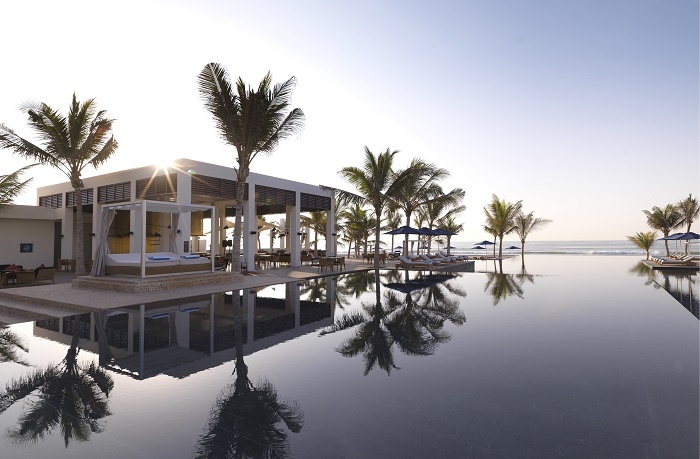
Breaking Travel News investigates: Al Baleed Resort Salalah by Anantara
Omani tourism has been one of the quiet success stories of the Middle East in recent years.
Eschewing the glitz of the United Arab Emirates, and without the religious fervour of Saudi Arabia, the country has carved a niche for itself as a natural playground.
With rugged mountains to the north, the landscape descends slowly onto the Indian Ocean in the south, giving the destination a diverse range of environments to exploit.
In early 2016, a new National Tourism Strategy was unveiled, formalising the aim to double the number of international arrivals to around five million annually by 2020.
If the goal is successfully reached, the sector’s contribution to annual GDP is expected to grow to more than six per cent, up from the 2.6 per cent reported in 2015.
Citizens of 38 countries now have the option of purchasing multiple-entry visas that are valid for three months, up from the previous allowance of 21 days.
The initiative also calls for the development of 14 tourism clusters, designed to attract more tourists and encourage longer visits.
Sites that have been earmarked for development include areas of natural interest in the country’s mountains and deserts, as well as existing tourist spots, such as the Musandam Peninsula in the north; the old cultural areas throughout the capital Muscat; and the frankincense trail in Salalah.
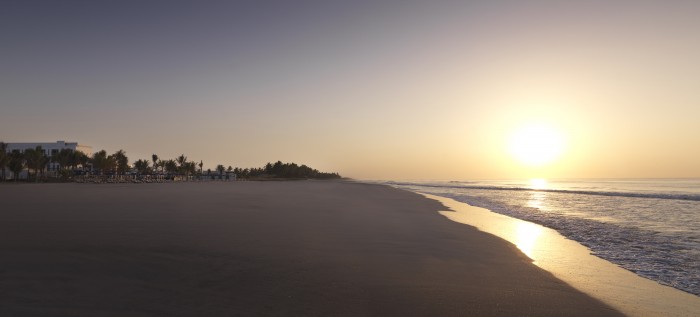
During a recent visit I headed to the latter, exploring the 6,000-year-old frankincense trading routes in the south of the country.
There is plenty for those with a passion for culture to discover here, with a chance to visit ancient ruins and heritage sites or saunter around a souk.
Of particular interest is the Al Baleed UNESCO archaeological site, which traces the history of the region back through the millennia.
Here the frankincense trees of Wadi Dawkah and the remains of caravan oases vividly illustrate the trade that flourished in this region during the medieval period.
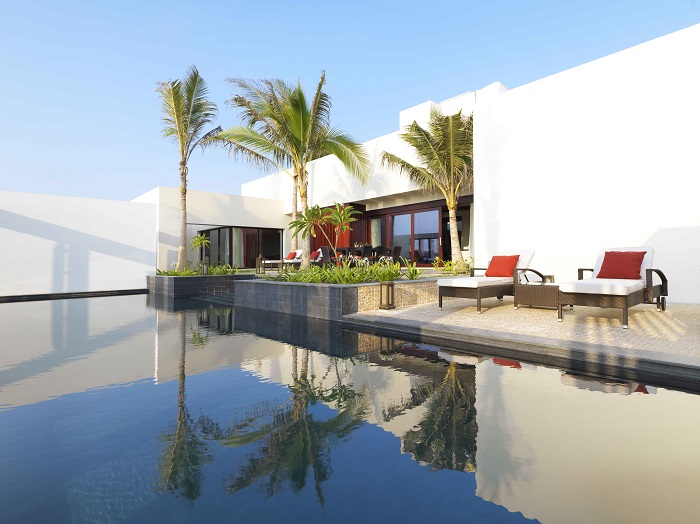
Of course, private sector stakeholders have also been crucial in the development of the tourism sector in Oman, with one company in particular taking the lead.
With both Al Jabal Al Akhdar Resort, high in the mountains outside Muscat, and Al Baleed Resort Salalah, Thai-based Anantara has sought to bring a new level of luxury travel to this Middle Eastern destination.
During my fleeting visit earlier this year I called in at the latter resort for the night and was suitably impressed with what I discovered.
Current Omani leader, sheikh Sayyid Qaboos bin Said Al Said, was born close by, and the area around Salalah has seen an infusion of public funds in recent years.
A gleaming new airport has recently opened, while several properties have debuted along the pristine beaches.
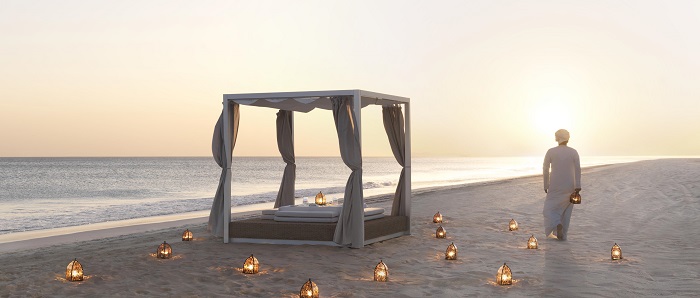
Al Baleed Resort Salalah by Anantara, however, remains in a class of its own.
Modelled on an Omani fort, the resort is pinned between the Dhofar mountains on one side and the ocean on the other, and is something of a self-contained paradise.
Home to just 136 rooms, guests are afforded the upmost privacy during their stay.
During my one-night visit I stayed in a one-bedroom garden view pool villa and hardly saw another soul.
Each room is a private enclave, secluded from the rest of the hotel, allowing guests the privacy to do whatever they wish.
Outside the walls, the hotel’s authentic architecture is surrounded by lush tropical gardens, with walkways framed by 750 coconut palms and eye-catching water features to create an air of tranquillity and serenity.
It needs to be seen to be believed.
When you’ve finished taking in the views, relaxing on the pristine white beach, and enjoying the myriad other facilities, there are a selection of great restaurants to indulge.
All-day dining restaurant Sakalan presents world flavours served by open kitchens, while south-east Asian restaurant Mekong takes guests on a journey along the legendary river with vibrant Thai, Chinese and Vietnamese cuisine.
Al Mina, a relaxed Mediterranean beach restaurant, serves well-crafted cocktails, barbecue delights and shisha.
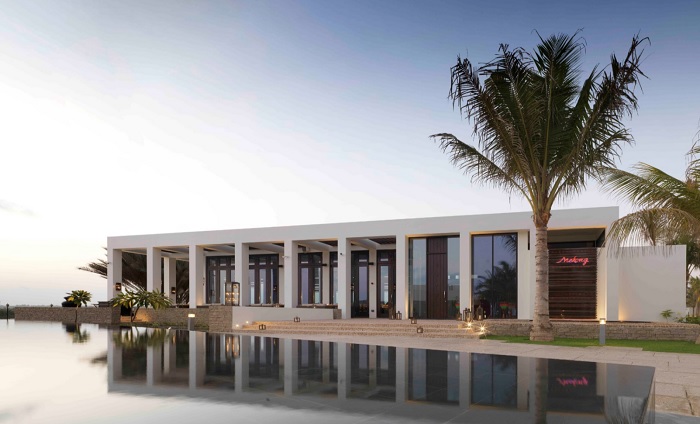
There is also a strong wellness product at Al Baleed Resort Salalah by Anantara.
Rooted in Thai philosophy with influences from Arabia, the world-acclaimed Anantara Spa takes guests on a holistic journey, offering the only hammam in Salalah alongside rejuvenating treatments using indigenous ingredients such as pomegranate, coconut and frankincense.
An hour-long signature frankincense massage left me deeply relaxed, while the resort also offers wellness programmes that are customised for each individual’s lifestyle with options including weight management, revitalisation, relaxation and de-stressing, detox, general wellbeing and rejuvenation.
For the full experience, courses can run over three, five or even seven days.
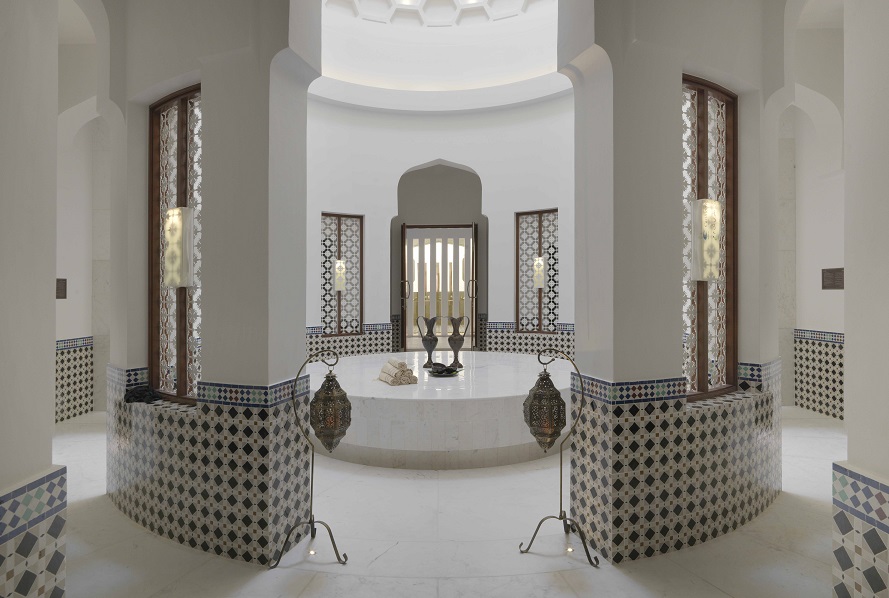
Famed for the riches of its wadis dotted with frankincense, coconut-fringed beaches, a wealth of archaeological sites and a profusion of tropical greenery during the summer monsoon season, Salalah offers intrepid travellers a unique destination of breath-taking natural beauty.
Guests at Al Baleed Resort Salalah can enjoy an array of authentic experiences, from hiking up rocky cliffs to catching fish for dinner or saluting the sunset with a yoga session.
Heading out, you can explore the fort-dotted mountains, rugged wadis and pristine beaches, with active travellers well served by diving, trekking, kite surfing and fishing.
If you visit at the right time of year, dolphins also swim close to shore, while magnificent sea turtles can be seen from the close by cliffs.
More Information
Anantara is a luxury hospitality brand for modern travellers, connecting them to genuine places, people and stories through personal experiences, and providing heartfelt hospitality in the world’s most exciting destinations.
The collection of distinct, thoughtfully designed luxury hotels and resorts provides a window through which to journey into invigorating new territory, curating personal travel experiences.
For more information on Anantara Hotels, Resorts & Spas, visit the official website.
Chris O’Toole

